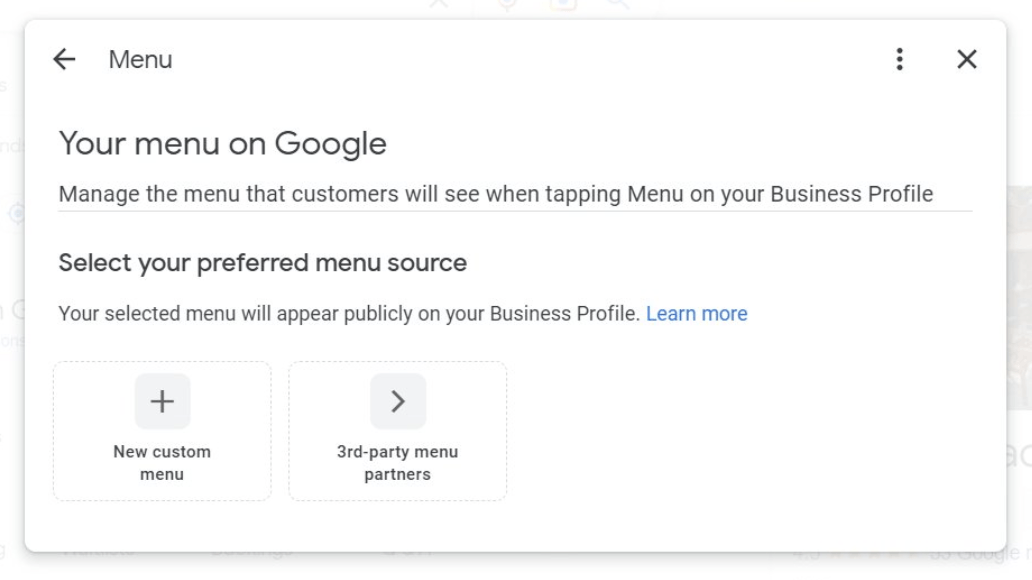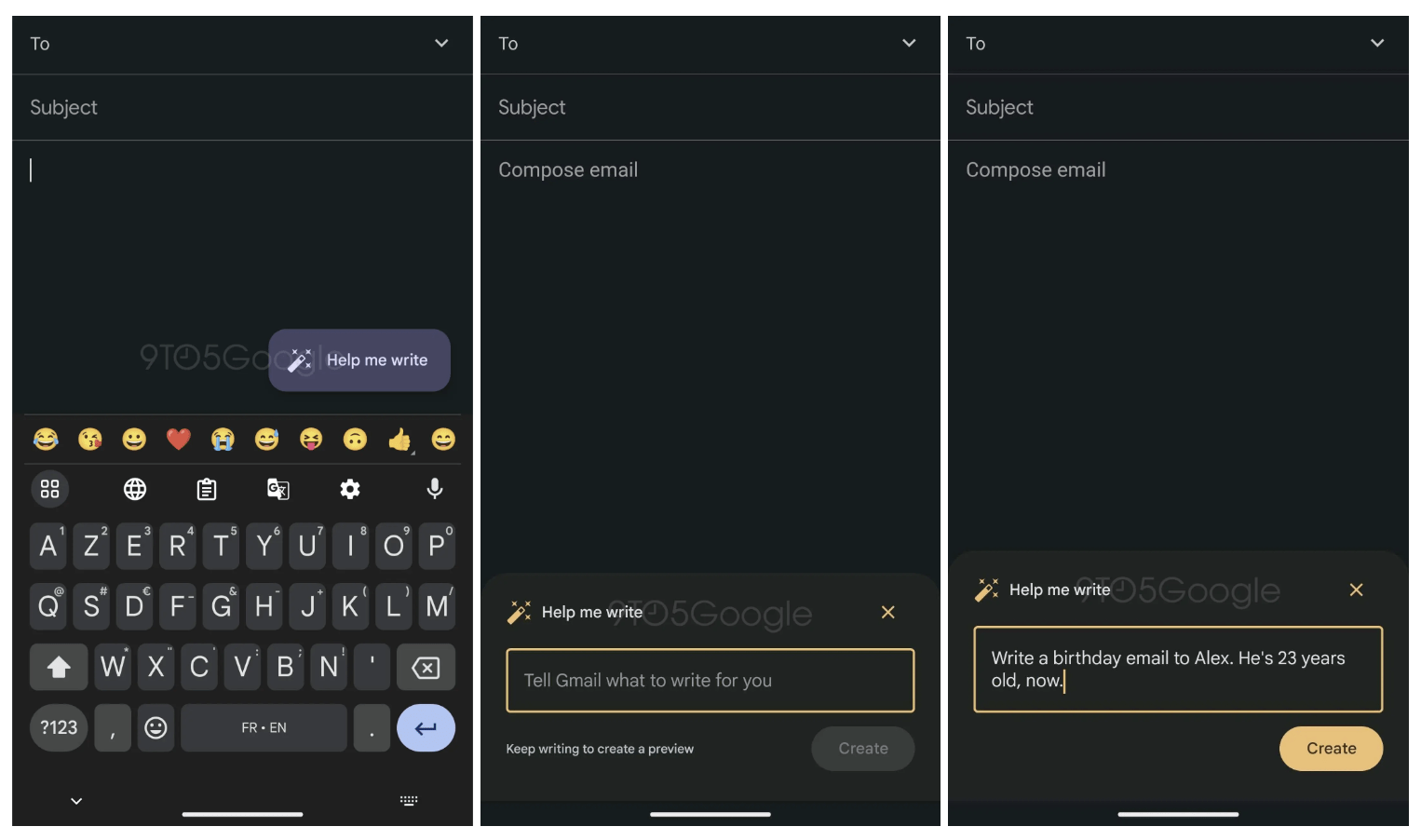Local Memo: Local Search Ranking Factors 2023 Released

In this week’s update, learn about Local Search Ranking Factors 2023; mixed reviews for Google’s Bard chatbot; ChatGPT’s launch of plugin support; image generation in Bing Chat; Google’s new restaurant menu options; and a preview of generative AI in Gmail and Google Messages.
Local Search Ranking Factors 2023 Released
The 2023 edition of the Local Search Ranking Factors report has been released by Darren Shaw at Whitespark. First developed by David Mihm, this report, which compiles the results of a survey of local SEO experts, has been updated every year or two since 2008. Shaw took over the report in 2017. The new edition for 2023 is the first update to the report since 2021.
As with previous editions, the report showcases the factors that experts believe to be the most significant in determining how Google Business Profiles and local business web pages rank in local searches. The trend chart shown here, focusing on GBP ranking factors offers many of the major takeaways: Google Business Profile signals have the biggest overall influence on local ranking, diminished slightly from 2021. On-page signals, the second most important factor, have grown in importance, while reviews, the third most important, went down by a small margin. Citations continue to reflect a loss in importance since the early days of local SEO when they were one of the strongest ranking signals.
Some of the new content in this year’s report includes ranking factors for Local Service Ads; a new list of the top factors that cause a listing to be at risk of suspension; and a list of some of the ways local SEOs are using AI tools in their work.
Bard Gets Mixed Reviews from Early Users
Google’s Bard chatbot, released to compete with ChatGPT, is now available by invite and has received mixed reviews from the SEO community. Chief amongst the complaints is the fact that Bard, unlike Bing Chat, rarely cites sources for the content it produces, only offering a “Google It!” option if users want to research further on their own. Users have also pointed out that Bard is liable to give bad SEO advice, such as suggesting that buying links is a good tactic for improving website performance, or that click-through-rate is a ranking signal. Local search results are somewhat miscellaneous according to Greg Sterling, with Bard returning different lists of businesses each time it receives the same query, none of which seem to match Local Pack results.
However, the chat tool does seem to produce responses more quickly than ChatGPT, and no stories have emerged as yet about strange experiences with Google’s AI matching the early experience of journalists with Bing Chat.
Google has released an FAQ which, in part, explains that Bard rarely cites sources because its intent is to produce original content, but will include a citation any time it quotes at length from a web page. Roger Monti has published a comprehensive guide to Bard in Search Engine Journal.
ChatGPT Launches Plugin Support
OpenAI, the company that produced ChatGPT, has announced plugin support for the popular chat tool, including plugins that would allow ChatGPT to access the live internet. Despite its impressive capabilities, for the time being ChatGPT is unable to access any information beyond the 2021 time limit in its training dataset. Opening up internet access would potentially make ChatGPT competitive with GPT-4-powered Bing Chat as well as Google’s Bard.
Other plugins will include a code interpreter and a plugin for gathering information from an existing knowledge base. The latter will presumably allow users to train ChatGPT in specialized disciplines. In addition, ChatGPT will support a range of third-party plugins such as the following:
- OpenTable for restaurant reservations
- Zapier for cross-platform automation
- Expedia and Kayak for travel planning
- Instacart for grocery ordering
- Klarna and Shop for online shopping
The plugin program is now in alpha release with a waiting list for users and developers.
Bing Chat Adds Image Generation, Grows User Base Slightly
Bing Chat has launched an image generation tool that is offered as part of the chatbot’s Creative mode. The tool is able to generate images in response to text prompts from users, and is powered by OpenAI’s DALL-E.
Bing has also reported a 15.8% increase in users since the launch of its GPT-4 integration. Earlier in March, Bing reported that, on the strength of Bing Chat’s popularity, the search engine had surpassed 100 million daily active users for the first time. During the same time period, Google’s usage reportedly declined by 1%.
Google Lets Restaurants Select Menu Source
Google has unveiled an updated version of its menu management tool in the Search interface for Google Business Profiles. The tool previously allowed users to upload information such as menu sections, menu items, photos, prices, and descriptions. Those features remain, but users will now also have the option to select which menu should be displayed to users, from a list of sources that may include the GBP menu itself and a list of third-party menu partners.

Courtesy Tim Capper / Search Engine Roundtable
A Preview of Generative AI in Gmail and Messages
What will generative AI look like in Gmail? An early preview has been created by 9to5 Google, using Google’s own announcements as well as decompiled code in the latest Android version of Gmail. It appears that Google will give users a “Help me write” prompt as well as several refinement buttons including Formalize, Elaborate, Shorten, and Bulletize. After choosing “Help me write,” users are prompted to create a brief description of the writing task, after which they can click “Create” to generate the requested content. A “Refine my message” capability will let users provide instructions for revision.
Google is reportedly also working on a text generation feature for Messages that will compose responses to your text messages – presumably an expanded version of the existing Smart Reply feature which can currently compose short responses based on the context of a conversation.

Courtesy 9to5Google




